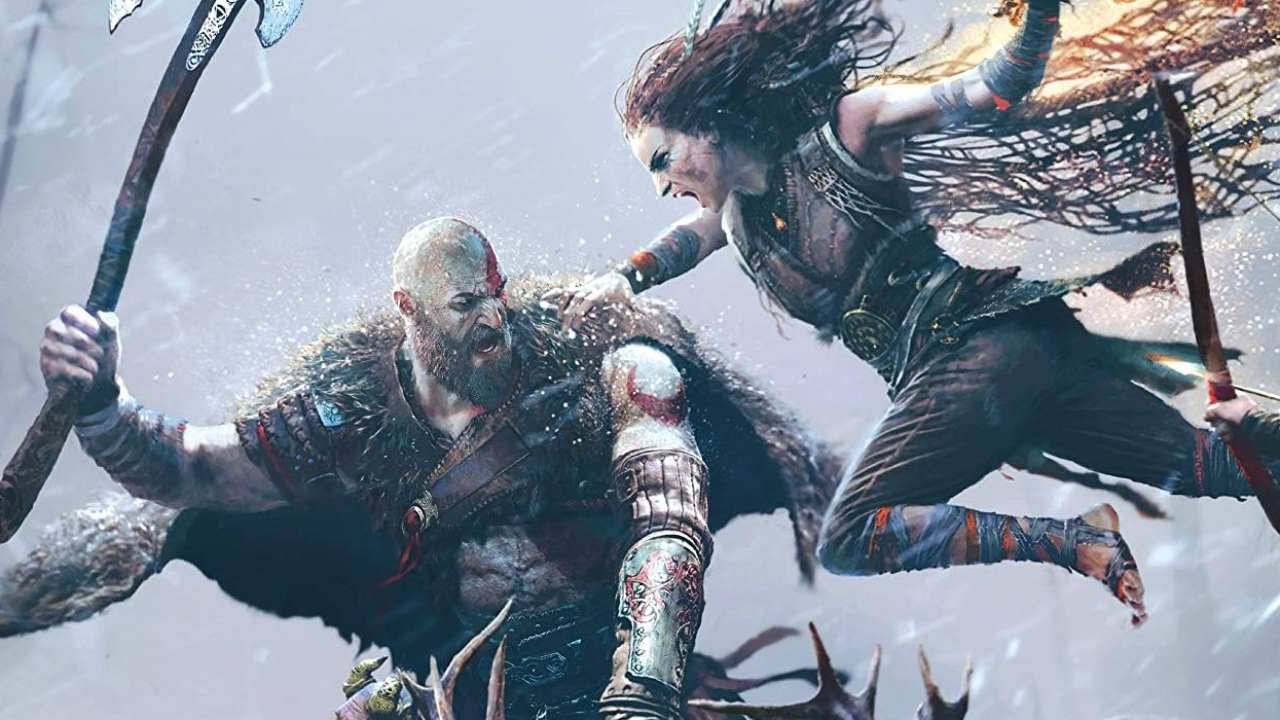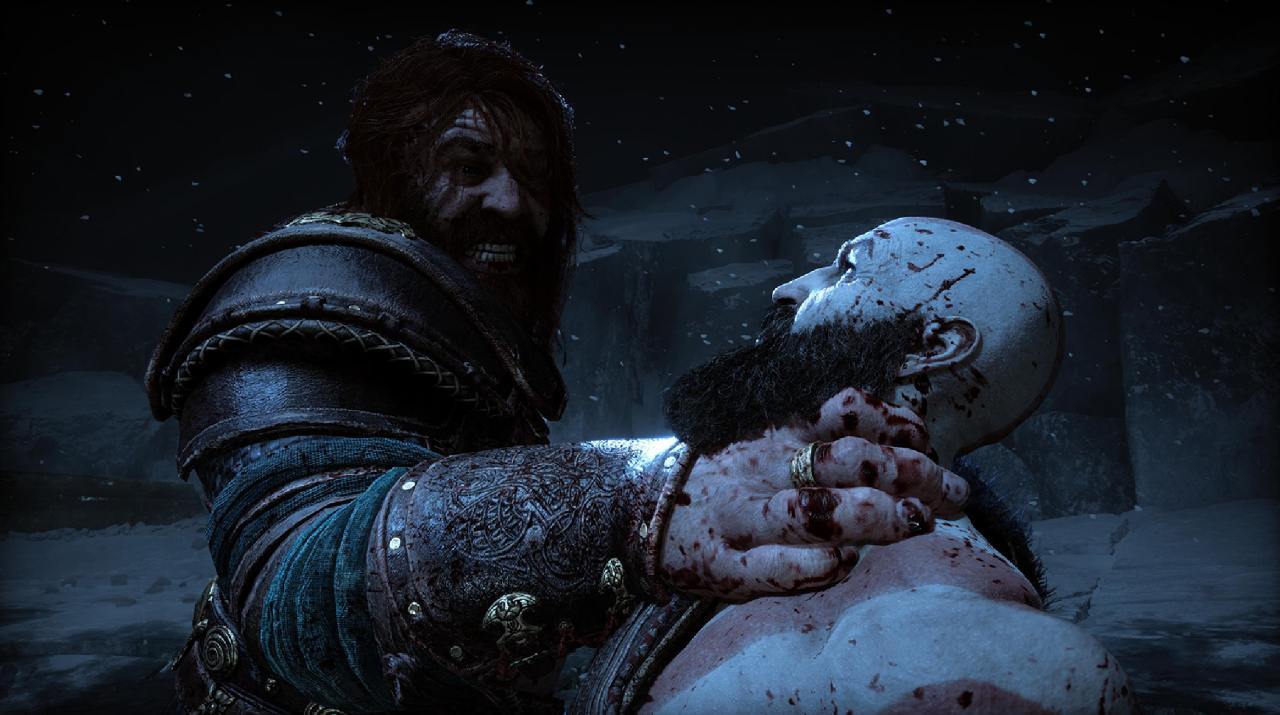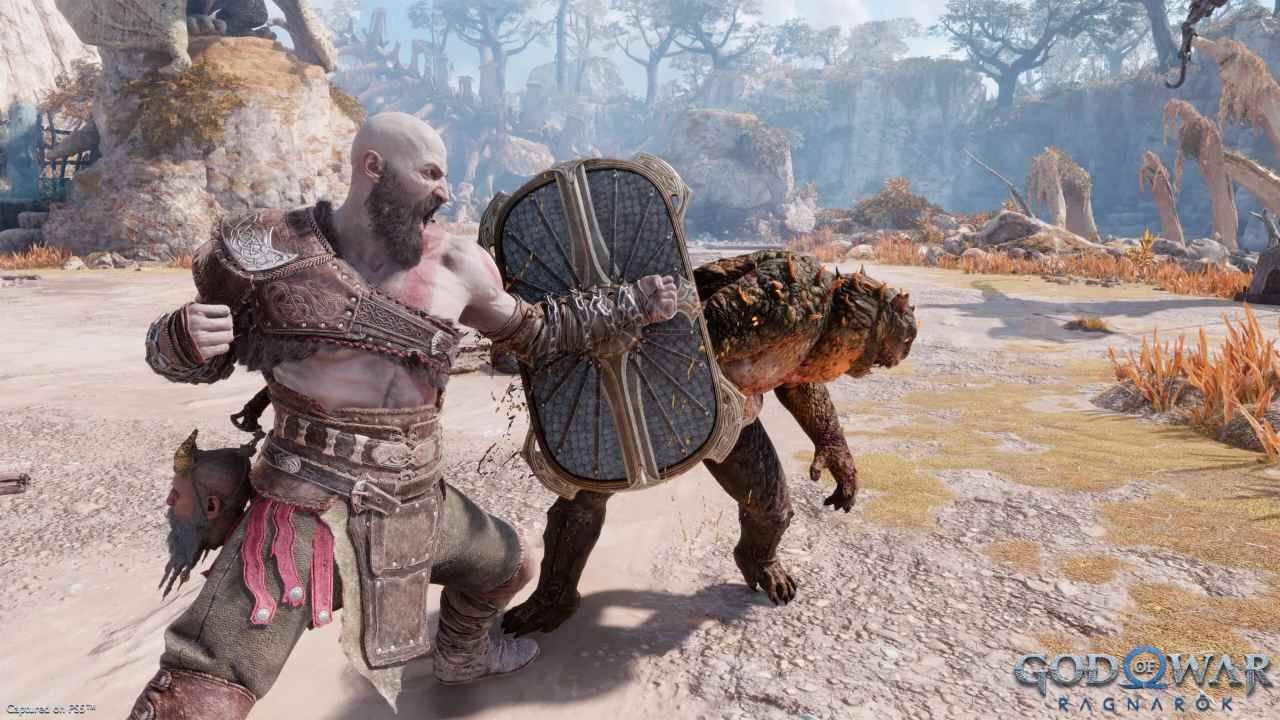Jessica Mao Wasn’t Credited for Her Contributions to God of War Ragnarok’s Development
Jessica Mao, an intern at Santa Monica Studios during God of War Ragnarök’s development, was not credited for her work. Should she have been?
by LCLupus on Nov 22, 2022
Credit is a very important thing for people who work in certain industries, so when credit is summarily denied to someone, that can have negative consequences for your career going forward. The games industry is often particularly bad at giving the people who work on games the credit they deserve, and this is a big problem.
People who work in creative industries of some kind have a very different resumé to most people. When it comes to many jobs out there, all you need is the relevant experience and a few references for a future employer to call. However, for a creative, you need a portfolio. No one’s asking an accountant to show off their previous spreadsheets, but everyone wants an illustrator to show off their previous illustrations. The games industry is particularly difficult in this regard.
If you are a musician or a writer, it’s relatively easy to create a portfolio by writing for various sites and blogs or making things on your own, and that can be shown off. However, when it comes to games, things are a little more complicated. It’s similar with film. Because, sure, there are solo developers who make games and can then put those games in their portfolio, and when it comes to indie games, even ones with big teams, there doesn’t tend to be that many people in the credits, so you’ll probably be credited if you worked on it. But what about AAA games?

There is a certain level of prestige for creatives depending on where the project came from. If you’re a writer and you have been published in the New York Times, that’s going to be worth more than being published by some random local newspaper. The same with games. If you manage to work on something as big and monumental as God of War Ragnarök, you may be kind of irritated when your name doesn’t appear in the credits.
Working on a game like that gives you prestige, it allows you to leverage your credit to get more work in other AAA games. It is very important, because if your name is left off the finished product, then anyone can check and they may not believe you when you said you worked on it. A prospective employer is going to ensure that they hire the best possible person, and if you say that you worked on a critically acclaimed game like God of War Ragnarök, then they’re going to check if your name is indeed in those credits.
This is where we come to the recent, at time of writing, story of Jessica Mao, a composer who worked as an intern during the development of God of War Ragnarök. She posted a Twitter thread in which she discussed what she did on the game. She shows off some of the boss and set piece sections that she had a hand in musically arranging. She even talks about some of the technical aspects that reveal her proficiency in musical composition.
According to a further tweet, she interned at Santa Monica Studios from June to August 2021 and worked full-time during her internship there. Now, this isn’t a particularly large amount of time, and she didn’t have a major role, but she did have a role. She worked on various scenes that involved tweaking music to maximize the impact of what was happening on screen, and so, at the least, she deserves credit of some kind. This is why it’s disappointing that she stated: “My name is not in the credits, and apparently it can't be added in a patch update. i was told that to be credited, my contribution to the game must hit some ‘minimum criteria’.”

Everyone in the credits of a game is credited, or meant to be credited, according to their contribution, so hers should likely be something like an internship credit. However, an internship credit is still a credit, and she was not credited at all. This means that she, from an industry standpoint, cannot use a game she spent several months of her life helping bring to life on her resumé.
In the case of Jessica Mao, this has managed to break the news in some places, so it’s possible that she will end up getting her credit added to the game, but this is more of a systemic, industry-wide problem than one intern composer getting her name in the credits. There is a history of people like interns and contractors, who do a lot of work for a game, not getting their name in the credits. Their contributions are often deemed too small to be of significance. Furthermore, the problem with determining the significance of any single person within a massive, collaborative medium like video games is a difficult thing to do. After all, how much does one coder contribute when a studio has dozens of coders? This doesn’t mean that any coder should be left out of the credits, does it?
We tend to see games as being developed by big-name people. We see something like Deus Ex and call Warren Spector the “creator” of the game even though he was actually the director and producer. Or we look at Ken Levine and call him the “creator” of BioShock when he was actually the director and writer. Yet we call these people the creators, we don’t focus on the hundreds of people who make a modern game come into existence. That’s just too many people. It’s a lot easier to think massive, AAA games were made by one person as if they were some indie game.
This can even be an issue in big-name spaces. For instance, Dragon’s Lair, the famous arcade adventure game, has Don Bluth’s name plastered all over it even though it was made by RDI Video Systems. This company is named after Rick Dyer, the man much more responsible for Dragon’s Lair than Don Bluth. Yet even he was only the head of the company and there were others who worked inside it, those who also deserve to be remembered for making that game. For those interested, the entire Dragon’s Lair/Rick Dyer saga was documented in a fantastic video by Hbomberguy.

Now, to most gamers, the credits are just a thing that we skip. It’s not fun to watch credits, not even when there’s something entertaining in the credits, like Flower allowing you to fly through every name or how Rayman Legends lets you destroy all the names. However, while you’re doing these things, are you actually paying attention to those names? And the credits on modern AAA games can scroll by for thirty minutes. There’s no way you could take all those names in! It’s simply impossible.
But it’s important to remember that those credits can generally be accessed at any time, and that those credits are also available elsewhere. They allow the developers who worked on games to use that game as a launchpad for work on other games. So, even when someone only does a small amount of work on a game, that doesn’t mean than their name deserves to be purged from the credits. They should definitely be there! And they should also be credited appropriately based on their specific contribution to the project. More than just famous developers work on games, and we need to start acting that way.
Justin van Huyssteen (@LC_Lupus)
Senior Editor, NoobFeed
Subscriber, NoobFeed
Latest Articles
No Data.

